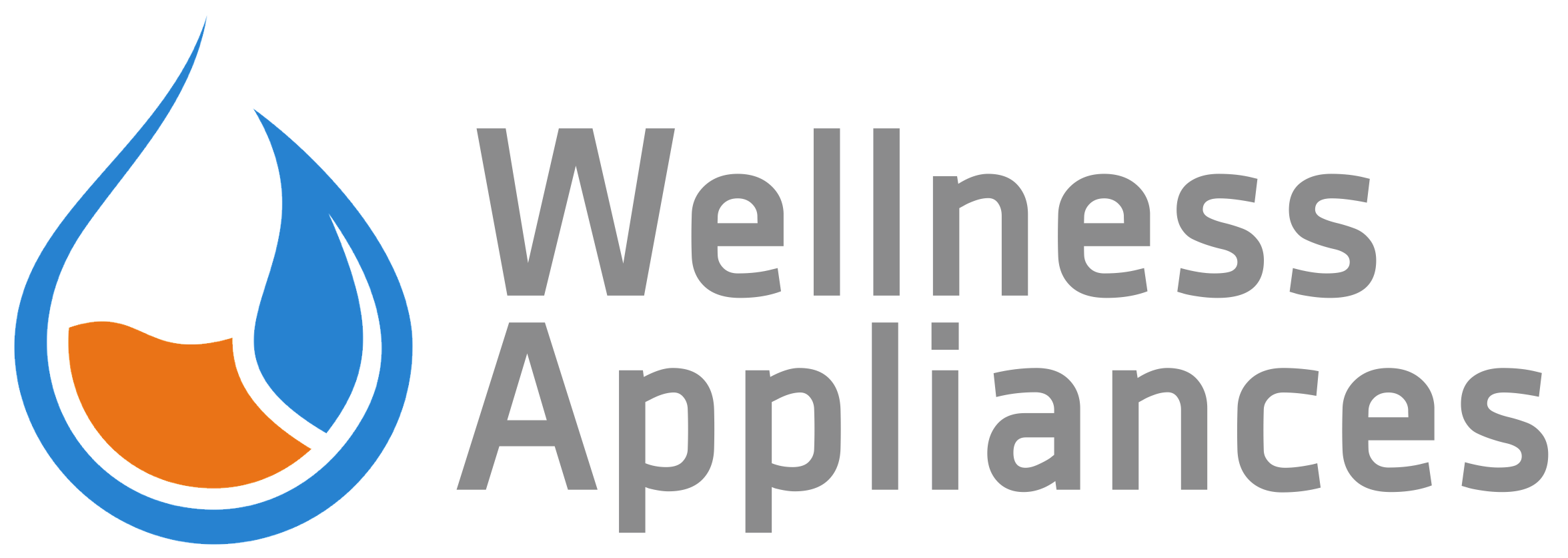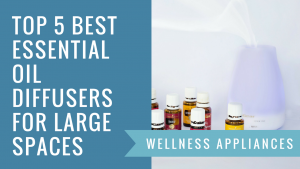Contents
- What Essential Oils Are Good For
- List of Essential Oils and What They Are Used For
- Lavender (Lavendula angustifolia—mint family)
- Peppermint (Mentha piperita)
- Frankincense
- Lemon
- Tea Tree (Melaleuca Alternifolia)
- Eucalyptus Essential Oil Benefits And Uses (Globulus Myrtaceae)
- Lemongrass (Cymbopogon Citratus)
- Orange
- Cinnamon Bark
- Rosemary Oil Benefits And Uses
- Sweet Orange (Citrus Sinensis)
- Bergamot
- Clary Sage
- Grapefruit
- Patchouli
- Spearmint
- Lime
- Tangerine
- Ajowan Seed
- Essential Oil Uses Chart and Reference Guide
- Benefits of Essential Oils
- Top 15 Popular and Best Smelling Essential Oils
Essential oils are very versatile and add a wide variety of benefits. They offer potent protection against a range of common ailments and help improve skin and hair health.
Their small molecular size means that they can penetrate deep in the dermis (skin) to provide a profound healing effect. Their wonderful scents also help balance emotions.
What Essential Oils Are Good For
As you will come to realize when searching for essential oils, every essential oil has different purposes. Not only do they have varying uses, but each essential oil specifically can be used for a multitude of different purposes.
Whether they are being applied physically or aromatically, they will perform differently and they all generally have many different effects. While they all excel in different domains, it seems there are many essential oils that have the same purposes as well.
Commonly, the most popular effects of essential oils are calming/stimulating effects, or alleviating skin/mental/physical symptoms/diseases. From there, they all have more specific purposes and, of course, different scents.
Find which essential oils are good for each specific use:
-
Reduce Feelings of Depression and Anxiety
While aromatherapy cannot completely eliminate feelings of depression or anxiety, it can complement other treatment options such as psychological counseling or even pharmaceuticals, should you choose to use them. It’s important to follow your doctor’s advice for treatment of depression and anxiety, as these are very serious conditions, but it never hurts to try a little extra. Lavender is useful for many things, including reducing feelings of depression. Other helpful essential oils include jasmine, peppermint, and chamomile. For more, see our full article Best Essential Oils for Treating Anxiety.
-
Relief of Headache or Pain
Not everyone is a fan of taking painkillers, and not everyone can even take them without feeling some very unpleasant side effects. Even if you do take painkillers, adding the use of essential oils to that certainly won’t hurt. To relieve pain or headaches, try oils such as lavender, chamomile, eucalyptus, peppermint, sage, juniper, or rosemary. For more, see our full article Best Essential Oils for Headaches.
-
Improved Sleep and Reduce Snoring
Getting regular, full nights of sleep is important for so many different aspects of our well-being, and, as with many other problems, using pharmaceuticals is not always an option for everyone, whether by personal choice or not. If you want to wake up feeling energized and well-rested, you can try lavender (of course!), chamomile (which can also often be found as a nighttime tea), jasmine, sandalwood, benzoin, neroli, and sweet marjoram. For more, see our full articles Best Essential Oils for Sleep andBest Essential Oils for Snoring.
-
Stronger Immune System
We can likely all agree that prevention is the best medicine. Some essential oils have anti-microbial, anti-fungal, and antibacterial effects that can help protect you from damaging infections and illnesses. Some essential oils to help with this include oregano, lemon, peppermint, cinnamon, frankincense, or eucalyptus. If you’re late in the game and you already have some congestion, try diffusing some eucalyptus to help clear your sinuses. For more, see our full article Best Essential Oils for Boosting the Immune System.
-
Increased Energy Levels
Many people rely on caffeine or other products with stimulating effects to get through the day; however, some people are sensitive to caffeine and other stimulants or would prefer not to use stimulants because of the negative effects these substances can have on the body.
Some essential oils can increase energy levels by improving circulation and stimulating the body and mind, and they don’t have negative side effects.For increased energy levels, you can try many different essential oils, such as cardamom, sage, rosemary, clove, cinnamon, or black pepper, all of which sound like things you might find in your spice cabinet, so you may already be familiar with these scents. Other helpful scents include angelica, jasmine, and tea tree. For more, see our full article Best Essential Oils for Natural Energy.
Some other things Essential oils are good for are:
- Best Essential Oils for Nerve Pain
- Best Essential Oils for Cold Sores
- Best Essential Oils for Laundry Use
- Best Essential Oils for Scars
- Best Essential Oils for Winter
- Best Essential Oils for Nail Strengthening
- Best Essential Oils for Jet Lag
- Best Essential Oils for Vertigo
- Best Essential Oils for Bruises
- Best Essential Oils for Aging Skin
- Best Essential Oils for Dandruff
- Best Essential Oils for Burns
- Best Essential Oils for Healthy Hair and Scalp
- Best Essential Oils for Skin Health
- Refresh Your Kitchen Using Essential Oils
List of Essential Oils and What They Are Used For
While ‘Therapeutic Grade’ may by a wishy-washy term itself, it doesn’t mean different types of essential oils don’t have recognized therapeutic or healing qualities. Here is a non-exhaustive list of a few essential oils and what they’re used for. If you’re looking for a list of the best essential oils for a specific purpose, please read our full guide on the Best Essential Oils.
-
Lavender (Lavendula angustifolia—mint family)
helps to alleviate stress, anxiety, irritability mental fatigue, panic attacks, and depression, but also good for bruises and stretch marks and it smells good.
Lavender is used for: burns, inflammation, cuts, wounds, eczema, dermatitis, fainting, headaches, influenza, insomnia, hysteria, migraine, headaches, nausea, nervous tension, promotes restful sleep, eliminates dandruff, prevents infections, improves mood, bacterial conditions, sores, ulcers, acne, boils, asthma, rheumatism, osteoarthritis, reduces inflammation, minimizes skin irritation, soothes a bloated stomach, and relieves stress.
-
Peppermint (Mentha piperita)
helps with nausea, vertigo, and exhaustion being good for headaches.
Peppermint is used for: inflammation, nausea, indigestion, fevers, respiratory problems, flatulence (gas), headaches, migraine, liver problems, arthritis, is a general stimulant, relieves stomach and bowel spasms, and pain. Peppermint oil has many of the same benefits as a nice cup of peppermint tea.
-
Frankincense
used for immune system stimulation and to help with asthma, dry coughing, and bronchitis.
-
Lemon
used for treating stress, infections, fever, asthma, insomnia, obesity, skin disorders, stomach problems, tiredness, and healthy hair; has antiseptic and disinfectant properties.
-
Tea Tree (Melaleuca Alternifolia)
known for its topical anti-fungal, antiseptic treatment and antibiotic properties; also effective in curing ailments like skin infections, burns, rashes, dandruff, and many more.
Tea Tree is used for: fungal infections, skin infections, cuts, sprains, strains, wounds, is a stimulant, aids with circulatory problems, is an antiseptic, antiviral, antibacterial, and antimicrobial, expectorant, fungicide, insecticide, sudorific (promotes sweating), and cicatrisant (forms scar tissue). While tea tree oil is beneficial in many ways, some of the components of tea tree can be harmful to pets. Use caution.
-
Eucalyptus Essential Oil Benefits And Uses (Globulus Myrtaceae)
for healing mucus membranes, inflammation, has anti-bacterial properties, maintains dental health, offers pain relief, aids respiratory infections, and improves the immune system.
Eucalyptus is used for: focusing the mind and concentration, sore throats, coughs, bronchitis, sinusitis, skin infections, ulcers, nervous exhaustion, tension, anxiety, sores, rheumatism, aches and pains, headaches, having antiseptic and anti-inflammatory properties, reduces swelling in mucous membranes, relieves sore muscles, heals skin ulcers, wounds, and skin eruptions.
-
Lemongrass (Cymbopogon Citratus)
used as an analgesic, antidepressant, sedative, antiseptic, anti-pyretic (reduces fevers), deodorant, and has anti-bacterial and anti-microbial properties.
Lemongrass is used for: infections, acne, headaches, sore throat, respiratory problems, fever, athlete’s foot, muscle aches, excessive perspiration, flatulence (gas), antiseptic, scabies, oily skin, insect repellent, and stress.
-
Orange
used as an antidepressant, anti-spasmodic, anti-inflammatory, antiseptic, gas/bloating, aphrodisiac, diuretic, sedative, tonic, stimulates gallbladder contractions to promote bile flow.
-
Cinnamon Bark
used for treating a variety of health disorders like diarrhea, colds, menstrual cramps, arthritis, digestive problems, respiratory problems, skin infections, blood impurity, and various heart problems.
-
Rosemary Oil Benefits And Uses
stimulates hair growth, boosts mental activity, reduces pain, and relieves respiratory problems, used to aid indigestion, mouth care, skin care, stress relief, and pain relief.
-
Sweet Orange (Citrus Sinensis)
helps to treat colds, dull skin, constipation, flu, gum problems, aids in digestion.
Sweet Orange is used for: colds, depression, anxiety, constipation, nervous conditions, muscular spasms, sedative, antiseptic dull skin, stress, flatulence (gas), flu, gums, mouth, and slow digestion.
-
Bergamot
helps to treat various skin problems and plays a major role in relieving the amount of stress with proper flow of vital energy throughout the body.
-
Clary Sage
possesses different properties helping as an antidepressant, anti-bactericidal, deodorant, digestive, and sedative.
-
Grapefruit
Like other citrus fruit oils, this essential oil also helps in relieving stress and minor anxiety.
-
Patchouli
helps to reduce acne, chapped skin, athlete’s foot, eczema, fatigue, and healthy hair. Smells good.
-
Spearmint
possesses several beneficial properties as an antiseptic, sedative, antidepressant, insecticide, fabric protector from moths and insects.
-
Lime
can be used as an antiseptic oil, antiviral, and disinfectant.
-
Tangerine
helps reduce occasional nervous irritability and stress reliever.
-
Ajowan Seed
also known as bishop’s weed, it is similar to thyme for scent and use. It is pungent and bitter similar in flavor to oregano and anise. It has been used in East Indian cuisine for centuries, and is a potent essential oil with healing benefits. The weed is organically grown in India. It is used to relieve and reduce pain, and it boosts the immune system to fight disease. Use only a few drops to gargle each day when coming down with a sore throat. It is extremely effective for bacteria, fungus, and viruses.
Essential Oil Uses Chart and Reference Guide
Essential oils have many uses. Here’s a guide chart to use as a quick look up:

Benefits of Essential Oils
Depending on the essential oil you select, you can add antiseptic, rejuvenating, tonic, or relaxing properties to a cleaner, moisturizer, ointment or body splash. Different oils can help prevent or clear skin problems; stimulate the generation of new cells; improve muscle tone; stimulate circulation of blood and lymph; eliminate waste; counter inflammation; balance sebum (oil) production; and reduce stress.
Essential oils are used for a plethora of human conditions:
- Moods
- Relaxing
- Energy
- Balance
- Stress Relieve
- Cheerfulness
- Bedtime
- Meditation
- Conditions
- Allergies
- Sinus
- Arthritis/Joint Pain
- Headaches/Migraines
- Depression
- Immune System Diseases
- Sports Injuries
- Respiratory Disease
- Skin Care
- Weight Loss
- Pain
- Insect Repellent
Top 15 Popular and Best Smelling Essential Oils
Just like popular food dishes, different essential oils will go in and out of popularity. Popularity depends on the essential oil’s uses, scent and availability.
While there are certain oils that remain popular over the years, such as ones renowned for their healing properties, or ones engrained in common practices, there are also scents that go in and out of popularity.
Here is a list of the essential oils that were popular this year and seem to be the most commonly used. If you want to learn more about each as well as their health benefits, this article contains more details.
Specific oils will trend up or down, peak in popularity and decline. Here are the top 15 popular oils for 2018:
- Bergamot
- Cedarwood
- Chamomile
- Eucalyptus
- Jasmine
- Lavender
- Lemon
- Marjoram
- Patchouli
- Peppermint
- Rose
- Rosemary
- Sandalwood
- Tea Tree
- Ylang-Ylang




